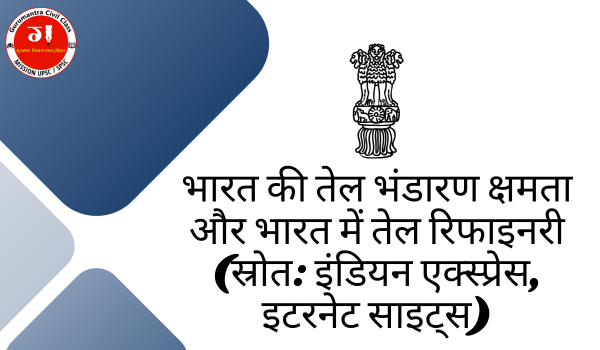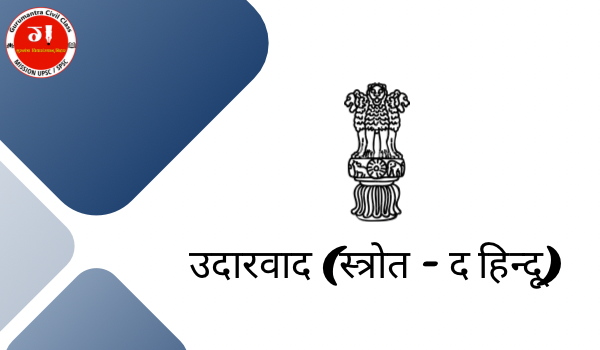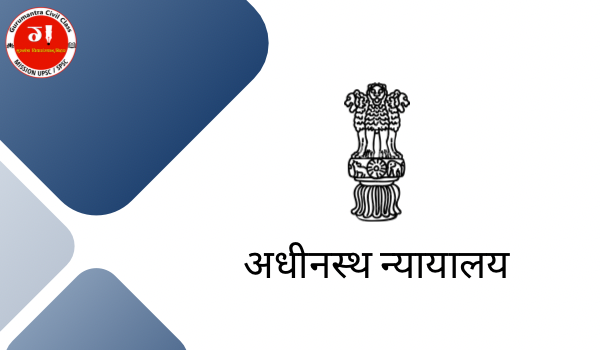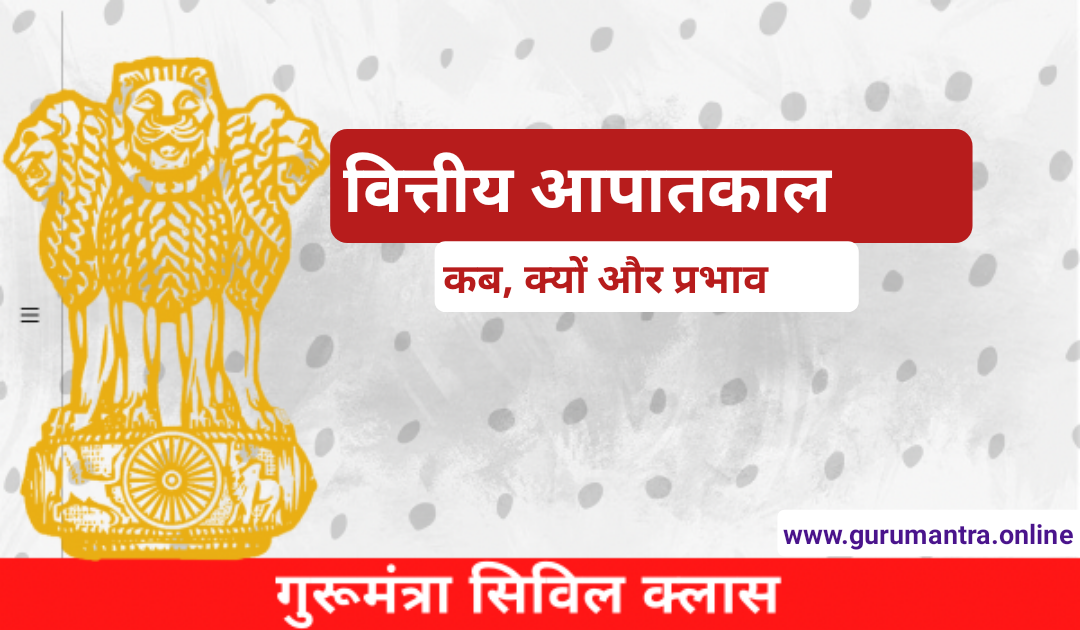विलियम पिट क्यों कंपनी पर ब्रिटिश संसद की शक्तियों में बदलाव करना चाहते थे?Why did William Pitt want to change the powers of the British Parliament on the Company?
By - Gurumantra Civil Class
At - 2024-01-09 21:57:49
1784 अधिनियम (Act)
25 फरवरी को ब्रिटिश संसद ने 1773 के रेगुलेटिंग एक्ट की कमियां दूर करने के लिये पिट्स इंडिया एक्ट 1784 पारित किया था। इस अधिनियम का नाम ब्रिटेन के तत्कालीन प्रधानमंत्री विलियम पिट के नाम पर रखा गया था। इसे ईस्ट इंडिया कंपनी अधिनियम, 1784 भी कहा जाता था ।
On 25 February, the British Parliament passed the Pitts India Act 1784 to remove the shortcomings of the Regulating Act of 1773. The act was named after the then Prime Minister of Britain, William Pitt. It was also called the East India Company Act, 1784.
ध्यातव्य दे कि 1773 तक ईस्ट इंडिया कंपनी वित्तीय संकट की तीव्र समस्या का सामना कर रही थी और ब्रिटिश सरकार से मौद्रिक सहायता के लिए कहा । ब्रिटिश शासकों ने पाया कि कंपनी के अधिकारियों की भाई-भतीजावाद और भ्रष्टाचार के कारण कंपनी घाटे में चल रही थी। इस कारण ब्रिटिश सरकार ने कंपनी की गतिविधि को नियंत्रित करने के लिए 1773 का विनियमन अधिनियम बनाया और वॉरेन हेस्टिंग्स पहला गवर्नर जनरल चुना गया। लेकिन भ्रष्टाचार को रोकने के लिए कानून प्रभावी नहीं हो सका और हेस्टिंग्स पर भी भ्रष्टाचार के आरोप लगे। तब ब्रिटिश सरकार ने अधिक सक्रिय भूमिका निभाने और कंपनी के मामलों में हस्तक्षेप करने का निर्णय लिया। इसलिए यह ब्रिटिश संसद द्वारा 1784 के पिट्स इंडिया बिल के तहत नियंत्रण बोर्ड स्थापित करने का दूसरा महत्वपूर्ण कदम था।
It may be noted that by 1773 the East India Company was facing acute problem of financial crisis and asked the British Government for monetary assistance. The British rulers found that the company was running at a loss due to the nepotism and corruption of the officers of the Company. For this reason the British Government enacted the Regulation Act of 1773 to control the activities of the Company and Warren Hastings was elected the first Governor General. But the law to prevent corruption could not be effective and Hastings was also accused of corruption. The British government then decided to take a more active role and intervene in the company's affairs. Hence it was the second important step by the British Parliament to set up a Board of Control under the Pitts India Bill of 1784.

इस अधिनियम के द्वारा छह सदस्यों के साथ एक बोर्ड स्थापित किया गया था, जिसमें दो ब्रिटिश मंत्रिमंडल के सदस्य थे और चार प्रिवी काउंसिल के सदस्य थे। बोर्ड का अध्यक्ष जल्द ही ईस्ट इंडिया कंपनी के मामलों का मंत्री बन गया। बोर्ड के पास कंपनी के नागरिक, सैन्य और राजस्व संबंधी मामलों को नियंत्रित करने की सभी शक्तियां थीं। इसके उपरांत परिषद को तीन सदस्यों में बदल दिया गया और गवर्नर – जनरल को बहुमत पर शासन करने की शक्ति दी गई। बॉम्बे और मद्रास के राज्यपालों की स्वतंत्र शक्ति में कटौती की गई थी जबकि बंगाल के राज्यपाल को युद्ध, राजस्व और कूटनीति के मामलों में अधिक शक्ति दी गई थी। इस प्रकार कंपनी की गतिविधियों के लिए कलकत्ता स्वचालित रूप से राजधानी में बदल गई।
By this act a board was established with six members, of which two were members of the British Cabinet and four were members of the Privy Council. The chairman of the board soon became the minister for the affairs of the East India Company. The Board had all the powers to control the civil, military and revenue matters of the Company. After this the council was reduced to three members and the Governor-General was given the power to rule by majority. The independent power of the governors of Bombay and Madras was curtailed while the governor of Bengal was given more power in matters of war, revenue and diplomacy. Thus Calcutta automatically turned into the capital for the company's activities.
अधिनियम 1773 को विनियमित करने के बाद , 1781 में, कंपनी के मामलों की जांच एक प्रवर समिति और एक गुप्त समिति द्वारा की गई, जिसमें बंगाल परिषद के साथ सुप्रीम कोर्ट का संबंध भी शामिल था।
गुप्त समिति द्वारा मराठा युद्ध (1775-82,1803-05, 1817-18) के कारणों की जांच की गई। कंपनी के निदेशकों ने स्वीकार किया कि युद्ध ने उन्हें भीख माँगी थी और राज्य से एक और मिलियन पाउंड के ऋण की मांग की थी । पिट्स इंडिया एक्ट ने एक ऐसी प्रणाली की स्थापना की जिसमें ब्रिटिश ईस्ट इंडिया कंपनी और ब्रिटिश सरकार ने भारत पर नियंत्रण साझा किया। ये परिवर्तन 1858 तक चले।
(After the Regulating Act 1773, in 1781, the Company's affairs were investigated by a Select Committee and a Secret Committee, including the Supreme Court's relationship with the Bengal Council.)
The causes of the Maratha War (1775-82,1803-05, 1817-18) were investigated by the Gupta Committee. The company's directors admitted that the war had begged them and demanded a loan of another million pounds from the state. Pitt's India Act established a system in which the British East India Company and the British government shared control over India. These changes lasted until 1858.)
अतः पिट्स इंडिया एक्ट का उद्देश्य ईस्ट इंडिया कंपनी को भारत में ब्रिटिश सरकार की निगरानी में रखकर 1773 रेगुलेटिंग एक्ट की कमियों को दूर करना था।
(Therefore, the purpose of Pitt's India Act was to remove the shortcomings of the 1773 Regulating Act by keeping the East India Company under the supervision of the British Government in India.)

एक्ट की विशेषताएं (Features of the Act)
• इस एक्ट ने कंपनी के राजनैतिक और वाणिज्यिक कार्यों को पृथक-पृथक कर दिया । (This act separated the political and commercial functions of the company.)
• इसने निदेशक मंडल को कंपनी के व्यापारिक मामलों के अधीक्षण की अनुमति तो दे दी लेकिन राजनैतिक मामलों के प्रबंधन के लिए 6 सदस्यीय नियंत्रण बोर्ड नाम से एक नए निकाय का गठन किया, जिनका कार्य निदेशक मंडल और भारत सरकार को आवश्यक परमादर्श देना और उनकी कार्यवाहियों पर नियंत्रण रखना था। नियंत्रण बोर्ड के सदस्यों में इंग्लैंड के अर्थमंत्री और प्रिवी कौंसिल के सदस्य शामिल थे। (It allowed the Board of Directors to superintend the business affairs of the company, but for the management of political affairs, a new body was formed by the name of the 6-member Board of Control, whose function is to give necessary guidance to the Board of Directors and the Government of India and on their proceedings. Had to take control. The members of the Board of Control included the Secretary of State for England and members of the Privy Council.)
• राज्य के सचिव को नियंत्रण बोर्ड के अध्यक्ष के रूप में नियुक्त किया गया था । दोहरी नियंत्रण प्रणाली शुरू किया गया था, जिसमें कंपनी का प्रतिनिधित्व कोर्ट ऑफ डायरेक्टर्स द्वारा किया गया था और ब्रिटिश सरकार का प्रतिनिधित्व बोर्ड ऑफ कंट्रोल द्वारा किया गया था ।
• (The Secretary of State was appointed as the Chairman of the Board of Control. A dual control system was introduced, in which the company was represented by the Court of Directors and the British government was represented by the Board of Control.)
• भारत में गोपनीय सूचनाएं भेजने के लिए 3 सदस्यों की एक गुप्त समिति का भी गठन किया गया। (A secret committee of 3 members was also formed to send confidential information to India.)
• गवर्नर जनरल कौंसिल की सदस्य संख्या को 4 से घटाकर 3 कर दिया । (The number of members of the Governor-General's Council was reduced from four to three. )
• नियंत्रण बोर्ड को यह शक्ति थी कि वह ब्रिटिश नियंत्रित भारत में सभी नागरिक सैन्य सरकार व राजस्व गतिविधियों का अध्ययन एवं नियंत्रण करें। (The Board of Control had the power to study and control all civil, military, government and revenue activities in British-controlled India.)
• बंगाल के गवर्नर जनरल को अब किसी भी देशी राज्य के प्रति किसी प्रकार की भी नीति (युद्ध, शांति या मैत्री) अपनाने के लिए नियंत्रण बोर्ड की सहमति अनिवार्य कर दी गई, और मद्रास और बम्बई के गवर्नर को राजस्व-सम्बन्धी तथा युद्ध और शांति मामलों में पूर्णतः गवर्नर जनरल के अधीन कर दिया गया। (The Governor-General of Bengal was now obliged to adopt any policy (war, peace or friendship) towards any native state with the consent of the Board of Control, and the Governors of Madras and Bombay were given revenue-related and war and peace. The matters were completely subordinated to the Governor General.)
• पिट्स इंडिया एक्ट कानून से ईस्ट इंडिया कंपनी की नीतियां पूरी तरह ब्रिटिश की सरकार के नियंत्रण में हो गई थी। With the Pitt's India Act Act, the policies of the East India Company were completely under the control of the British government.
यह अधिनियम दो कारणों से महत्वपूर्ण था (This act was important for two reasons)-
1. भारत में कंपनी के अधीन क्षेत्र को पहली बार 'ब्रिटिश आधिपत्य क्षेत्र' कहा गया। (The area under the Company in India was for the first time called 'British possessions'.)
2. ब्रिटिश सरकार को भारत में कंपनी के कार्यों और इसके प्रशासन पर पूर्ण नियंत्रण प्रदान किया गया। (The British Government was given complete control over the Company's operations and its administration in India.)
इसके महत्त्व पर प्रकाश डालते हुए सी.एच. फिलिप्स ने लिखा है कि 1784 ई. का अधिनियम एक कुटिल प्रस्ताव था, जिसने संचालक-समिति की राजनीतिक सत्ता को मंत्रिमंडल के गुप्त और प्रभावशाली नियंत्रण में ला दिया था। इस अधिनियम ने उस प्रशासनिक ढाँचे को तैयार किया जो थोड़े-बहुत संशोधनों के साथ 1858 तक चलता रहा।
(Highlighting its importance, C.H. Phillips has written that the Act of 1784 AD was a devious proposal, which brought the political power of the governing committee under the secret and effective control of the cabinet. This act created the administrative set-up that lasted till 1858 with some minor modifications.)

पिट्स अधिनियम, 1784 के अनुसार, निदेशक मंडल को दिए गए अधिकार (As per Pitts Act, 1784, the powers given to the Board of Directors)-
• निदेशक मंडल को कंपनी के रिकॉर्ड तक पूर्ण नियंत्रण प्रदान की गई थी । इसे भारत में गवर्नरों को भेजने और उन्हें बदलने का अधिकार था। (The Board of Directors was given complete control over the records of the company. It had the power to send and replace the governors in India.)
• कोर्ट ऑफ डायरेक्टर्स को कंपनी का प्रतिनिधित्व करना था, और बोर्ड ऑफ कंट्रोल को क्राउन का प्रतिनिधित्व करना था। (The Court of Directors was to represent the company, and the Board of Control was to represent the Crown.)
संपत्ति के प्रकटीकरण के प्रावधान (Property Disclosure Provisions) :-
• अपने पद ग्रहण करने के दो महीने के भीतर, ईस्ट इंडिया कंपनी के सभी नागरिक और सैन्य अधिकारियों को भारत और ब्रिटेन में अपनी संपत्ति की पूरी सूची के साथ कोर्ट ऑफ डायरेक्टर्स को उपलब्ध कराने का आदेश दिया गया था। (Within two months of assuming his office, all civil and military officers of the East India Company were ordered to provide the Court of Directors with a complete list of their assets in India and Britain.)
• भ्रष्ट अधिकारियों के लिए कड़ी सजा का प्रावधान किया गया। (Strict punishment was made for corrupt officials.)
• 1858 में भारत में कंपनी के शासन के अंत तक पिट्स इंडिया एक्ट द्वारा स्थापित संविधान काफी हद तक अपरिवर्तित रहा । (The constitution established by the Pitts India Act remained largely unchanged until the end of the Company's rule in India in 1858.)
हालांकि इसमें कई दोष भी रहे, जैसे कि बोर्ड ऑफ कंट्रोल, कोर्ट ऑफ डायरेक्टर्स और काउंसिल में गवर्नर जनरल को क़ानून के तहत अधिकार क्षेत्र दिया गया था, लेकिन कोई स्पष्ट सीमा स्थापित नहीं की जा सकती थी क्योंकि यह मुद्दा उद्देश्य के बजाय व्यक्तिपरक था। गवर्नर जनरल आसानी से अपने दो आकाओं को एक दूसरे के खिलाफ रख सकता है और अपनी पहल पर कार्य कर सकता है। एक भ्रष्ट परिषद और गवर्नर जनरल की अपने फैसलों को वीटो करने में असमर्थता उसे अप्रभावी बना सकती है, खासकर अगर सैनिकों का उपयोग करने का उसका अधिकार सीमित है। यह इस तथ्य के कारण था कि सरकारी निगरानी और कंपनी की शक्तियों के बीच की सीमाएं शुरू से ही परिभाषित और बेहद व्यक्तिपरक थीं। ब्रिटिश कब्जे वाले क्षेत्रों में स्थानीय लोगों के बेहतर इलाज के लिए मानवीय अपील ने ब्रिटिश सरकार को कार्रवाई करने के लिए मजबूर किया। बोर्ड ऑफ कंट्रोल पर भाई-भतीजावाद का आरोप लगाया गया था ।
(Although it had several drawbacks, such as the Board of Control, the Court of Directors and the Governor-General in Council having jurisdiction under the statute, no clear boundaries could be established as the issue was subjective rather than objective. The Governor General can easily pit his two masters against each other and act on his own initiative. A corrupt council and the governor general's inability to veto his decisions can make him ineffective, especially if his right to use troops is limited. This was due to the fact that the boundaries between government oversight and the powers of the Company were from the outset defined and highly subjective. The humanitarian appeal for better treatment of the local people in the British occupied territories compelled the British Government to act. The Board of Control was accused of nepotism.)
-द्वारा - चन्द्रशिव सर (Gold Medal Awarded Tutor)
आवश्यक सूचना - इस Blogs में 6 गलती ढूंढने वाले को Gurumantra General Package के One Month Subscription को पुरस्कार के रुप में दिए जाएंगे।
.jpg)
Comments
Releted Blogs

भारत की तेल भंडारण क्षमता और भारत में तेल रिफाइनरी (स्रोत: इंडियन एक्स्प्रेस, इटरनेट साइट्स)
By - Admin
भारत की तेल भंडारण क्षमता कितनी है ? भारत की तेल रिफाइनरी व्यवस्था कैसी है?

उदारवाद (स्त्रोत - द हिन्दू)
By - Admin
वर्तमान युग में उदारवाद को सुचारू करना क्यों आवश्यक है ?

